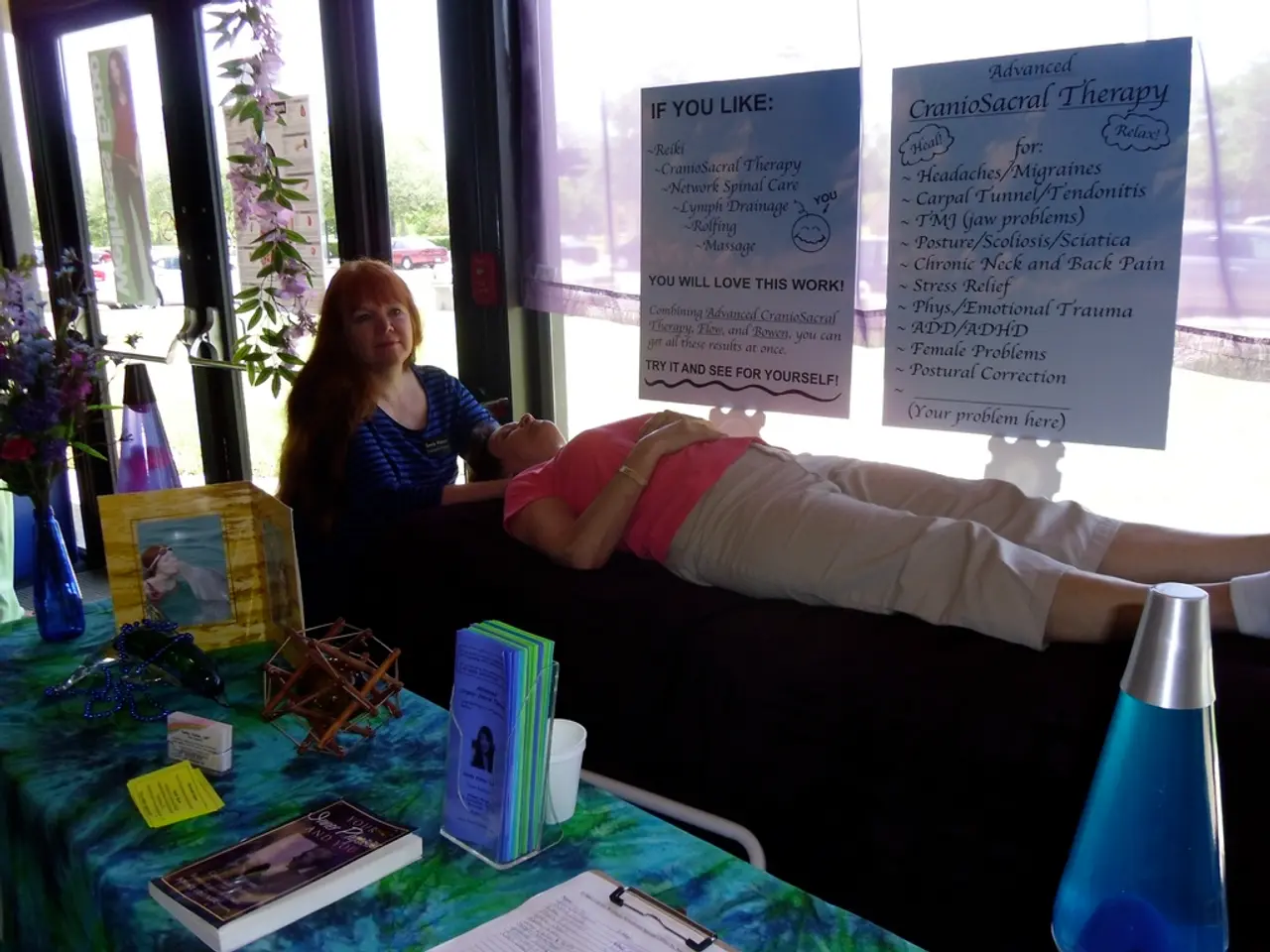Duration of Menopause Symptoms: A Look at Their Persistence
Menopause, a natural part of sexual maturation, is a transition that typically lasts around 7 years on average. This period, known as the menopause transition, is followed by the actual menopause, which is defined as 1 year after a person's last period. During this transitional phase, most women begin experiencing symptoms, which can last for an additional 5 to 10 years[1][3].
The duration of menopause symptoms varies significantly among individuals. While many women find their symptoms resolving within 2 to 5 years after menopause, approximately 10 to 20% may experience symptoms for as long as 10 to 12 years or more[4].
Vasomotor symptoms, such as hot flashes and night sweats, generally last 1 to 2 years after menopause, but in rare cases, they can extend up to 5 years or longer[2]. Emotional symptoms like mood swings can begin in perimenopause and may last around 7 years before menopause, sometimes persisting thereafter[2]. Vaginal dryness and urinary symptoms often start during perimenopause and tend to be more persistent, sometimes not resolving naturally with time[4].
In light of these potentially lengthy symptom durations, ongoing medical support can help manage symptoms effectively and improve quality of life throughout this transition[1][2][4]. Regular doctor visits may be recommended during perimenopause for preventive healthcare, including certain health screenings such as colonoscopies, mammograms, and blood tests.
Doctors often prescribe the lowest dose of estrogen to relieve menopause symptoms, particularly hot flashes[1]. Hormone replacement therapy (HRT) can also help, but it carries a small risk of breast and ovarian cancer[1]. Low-dose antidepressants and some anti-seizure medications may help alleviate hot flashes during menopause[1]. Vaginal estrogen, in the form of cream, tablets, or inserted rings, can help relieve dryness and discomfort during intercourse[1].
It is essential to note that menopause is not a disease, and the transition can start earlier due to surgery or hormonal treatments. Symptoms of menopause may include irregular menstruation, vaginal dryness, decreased fertility, weight gain, hot flashes, night sweats, sleep disturbances, low mood, attention problems, thinning skin and hair, and urinary frequency and incontinence[1].
Given the varied and sometimes lengthy nature of menopause symptoms, it is crucial for individuals to seek medical advice and regular check-ups to ensure optimal health and well-being during this life stage.
References: [1] Mayo Clinic. (2021). Menopause: Symptoms & Causes. [2] National Institute on Aging. (2021). Menopause. [3] Office on Women's Health. (2021). Menopause. [4] North American Menopause Society. (2021). The Menopause Years: What Every Woman Should Know.
- The menopause transition, a natural phase of sexual maturation, typically lasts around 7 years, followed by the actual menopause, which is defined as 1 year after a person's last period.
- During this transitional phase, most women begin experiencing symptoms, which can last for an additional 5 to 10 years.
- Vasomotor symptoms, such as hot flashes and night sweats, generally last 1 to 2 years after menopause, but in rare cases, they can extend up to 5 years or longer.
- Emotional symptoms like mood swings can begin in perimenopause and may last around 7 years before menopause, sometimes persisting thereafter.
- Vaginal dryness and urinary symptoms often start during perimenopause and tend to be more persistent, sometimes not resolving naturally with time.
- Doctors often prescribe the lowest dose of estrogen to relieve menopause symptoms, particularly hot flashes, and hormone replacement therapy (HRT) can also help, although it carries a small risk of breast and ovarian cancer.
- It is essential to note that menopause is not a disease, and the transition can start earlier due to surgery or hormonal treatments.
- Given the varied and sometimes lengthy nature of menopause symptoms, it is crucial for individuals to seek medical advice and regular check-ups to ensure optimal health and well-being during this life stage.




